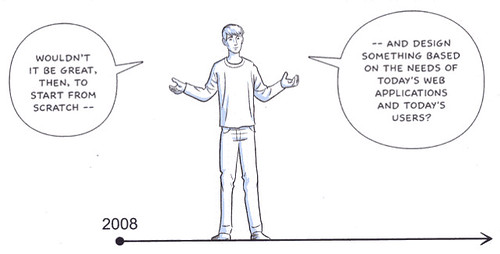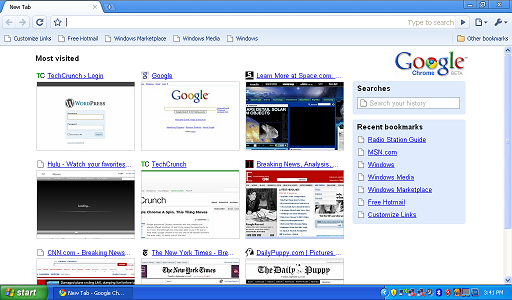I’ve been a big flickr fan for years. I take a lot of photos and that’s always been my favorite spot to put them. Flickr‘s been great at pioneering the 2.0 photo experience. They were the first to have a photostream view – not just albums. And they were the first to have tags which allow you to organize your photos in a better way. However, they haven’t done much lately. Sure, they added videos which is GREAT but that’s about it. The look hasn’t changed, there aren’t many new features and i feel that they are getting out developed by facebook’s photo experience and Google‘s Picasa. Sure those sites have different goals for their photo experience but at least they are moving forward. What’s Flickr done for me lately? Nothing.
Both Facebok and Picasa allow you to specifically name who is in each photo. Facebook does this by “tagging” a photo with a user and Picasa does this by analyzing the faces in the photos. Both are brain dead simple to use and are really slick. I’ve always used Flickr’s tags to do this with thier photos but i’d like to more specifically associate a photo with a user.
I also think that Flickr could make the “editing” of photo metadata easier. The order a picture shows up in your photostream is effectively the date you took it – but if you upload a photo much later, you have to go back and manually adjust the dates so it appears in the right spot. Flickr has always made title and description editing amazingly simply by keeping it in-line but adjusting the date and privacy of a photo still takes you to another page. Why can’t they make that easier? Same thing with setting a group of photos to a later date. This is too hard to do.
The bottom line is that i still love Flickr but i feel that it’s getting stagnant. i’m starting to think that Flickr has officially become a Yahoo company and not a nimble startup. And i don’t want to hitch my wagon to something that is in maintenance mode. I knew this day would come and i think the day might finally be here. I think i could say the same about delicious too. That site could have been much bigger than it is.
I’m wondering now – where should my photos go? What’s going to be be even better. I don’t like how Picasa is only albums but i do like how they are at least getting better and better. Is there a 3.0 photo experience that i can use?
Related articles:
- What Photo-Sharing Website Do You Use?
- Google’s Picasa Moves Onto Flickr’s Turf: Adds Ways To Explore Interesting Public Photos
- Google unveils newest Picassa
- Picasa for Macs Might Launch at Macworld 2009 [Picasa]

![Reblog this post [with Zemanta]](http://img.zemanta.com/reblog_e.png?x-id=1689b027-60e6-4231-b5ce-acaa84335226)

![Reblog this post [with Zemanta]](http://img.zemanta.com/reblog_e.png?x-id=20118aad-87c2-49d8-827b-c6f09eab0c5a)


![Reblog this post [with Zemanta]](http://img.zemanta.com/reblog_e.png?x-id=7bb68b0f-d270-4f70-a504-62912f91c944)

![Reblog this post [with Zemanta]](http://img.zemanta.com/reblog_e.png?x-id=96452e70-07bd-4e44-87c8-f1e630f9582c)
